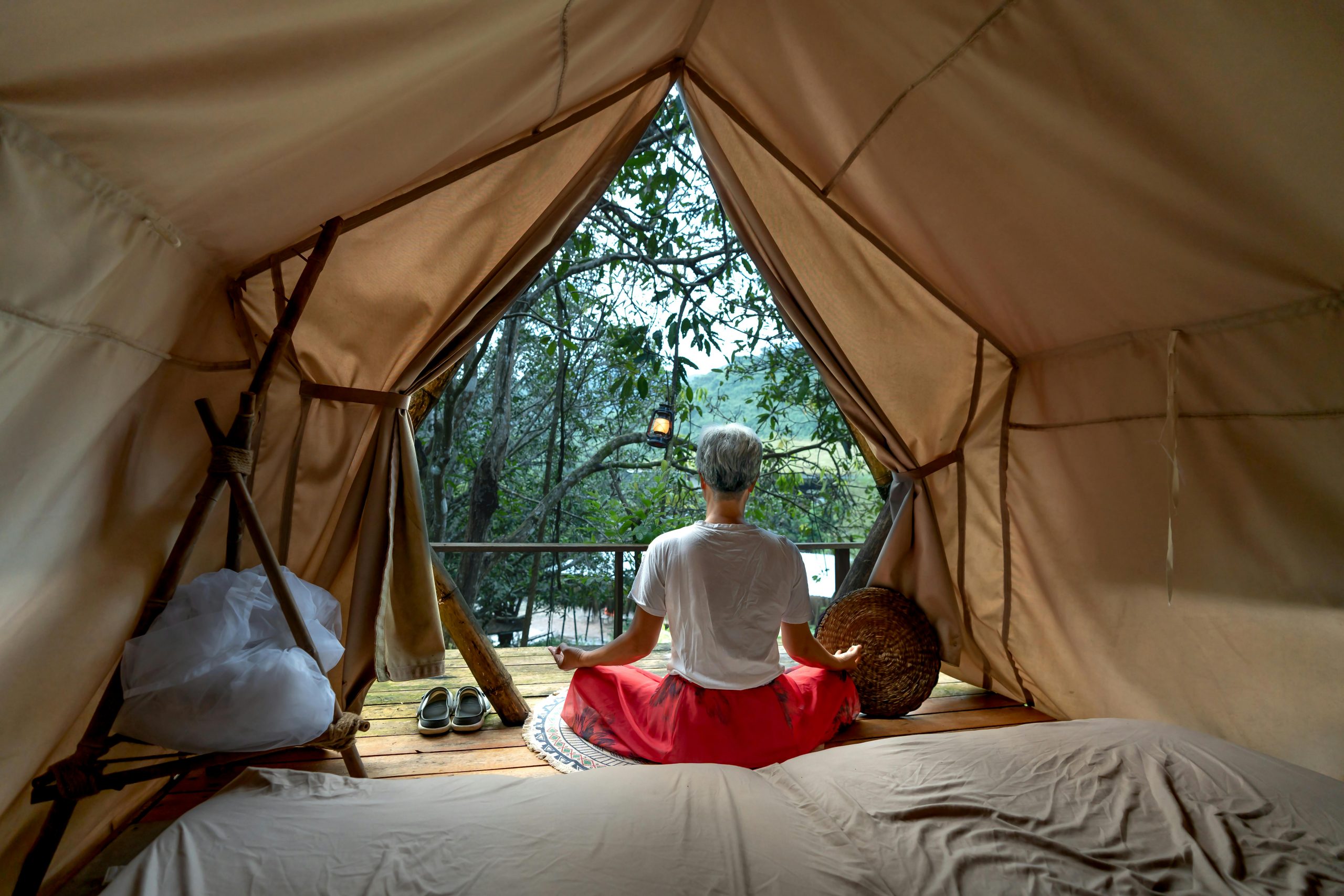Health and wellness retreats are dedicated spaces and experiences designed to help individuals disconnect from the chaos of everyday life and reconnect with their inner peace and well being. These retreats combine various holistic therapies, physical activities and nutritional practices to promote optimal mental, emotional and physical health. Whether you’re seeking stress relief, detoxification, or spiritual growth, wellness retreats offer curated programs tailored to diverse personal goals.
In the post pandemic era, health conscious travel has soared in popularity. More people are prioritising preventive care, mindfulness and emotional balance, making wellness retreats a top choice for transformative travel experiences. From tranquil mountain escapes to beach front sanctuaries, these retreats provide a sanctuary where rejuvenation becomes a reality.
Why Choose a Health and Wellness Retreat?
Choosing a health and wellness retreat can be a life changing decision. These retreats provide more than just a break from routine they offer a structured environment to restore balance and achieve personal transformation.
Mentally, they help reduce stress, improve clarity and nurture emotional resilience through mindfulness practices and therapeutic sessions. Physically, retreats promote healing and vitality with fitness programs, balanced nutrition and spa therapies. Spiritually and emotionally, wellness retreats often incorporate meditation, energy healing, or spiritual coaching to help guests connect more deeply with themselves.
In short, wellness retreats create a nurturing space that supports growth in every dimension of well-being. Whether you’re healing from burnout or simply seeking to deepen your self-care practice, a retreat provides the tools and support you need.
By the way, if you’re exploring meaningful ways to travel later in life, you might also enjoy our guide on mature travel.
In short, wellness retreats create a nurturing space that supports growth in every dimension of well-being. Whether you’re healing from burnout or simply seeking to deepen your self-care practice, a retreat provides the tools and support you need.
Top Features of a High-Quality Retreat
A high-quality wellness retreat is defined by its attention to detail, philosophy and experienced staff. The best retreats take an all encompassing approach to well-being, addressing the mind, body and spirit as interconnected parts of health.
Key features include:
- Qualified practitioners and facilitators such as yoga instructors, nutritionists, therapists and spiritual guides.
- Nutritional support with organic, locally sourced meals designed to detoxify and energise.
- A variety of programs, including yoga, meditation, massage therapy, workshops and fitness training to suit different needs and goals.
- A serene environment, often nestled in nature, which aids relaxation and facilitates a deeper healing experience.
Look for retreats that emphasise personalised care, transparency in their offerings and positive testimonials from past attendees.
Popular Types of Wellness Retreats
Wellness retreats come in many forms, each tailored to specific health goals and preferences. Understanding the various types can help you choose the one that aligns best with your needs:
- Yoga and Meditation Retreats: Focused on inner peace and flexibility, these retreats often include daily yoga sessions, breathing exercises, guided meditations and spiritual discussions like those highlighted in our guide to yoga and meditation experiences.
- Detox and Weight Loss Retreats: Designed to cleanse the body and jumpstart healthy habits, these retreats typically offer juicing, fasting, or plant-based diets alongside fitness classes and medical supervision. Go here to learn about more about detox and weight loss retreats.
- Spa and Relaxation Retreats: Perfect for stress relief, these programs include massages, hydrotherapy, aromatherapy and other pampering treatments, as detailed in our guide to spa and relaxation retreats.
- Adventure and Nature Retreats: Combine outdoor activities like hiking, kayaking, or horseback riding with wellness practices to promote a deep connection with nature. Learn more here about adventure and nature retreats.
- Digital Detox Retreats: Encourage guests to unplug from technology and engage in mindful practices, fostering mental clarity and reduced anxiety.
Not sure where to begin?
No matter your preference, there’s a retreat to meet your specific goals be it spiritual enlightenment, physical transformation, or mental stillness.
Best Global Destinations for Health and Wellness Retreats
Choosing the right destination can greatly improve the retreat experience. Here are some of the top wellness retreat locations worldwide:
- Bali, Indonesia: Known for its lush landscapes and spiritual energy, Bali offers countless yoga and healing retreats, especially in Ubud.
- Tulum, Mexico: This coastal paradise blends ancient Mayan traditions with modern wellness, featuring beachside yoga, temazcal ceremonies (traditional Mesoamerican sweat lodge, often used for purification and spiritual cleansing) and clean eating.
- Kerala, India: The birthplace of Ayurveda, Kerala is a sanctuary for traditional Indian wellness practices, healing and authentic Ayurvedic treatments.
- Costa Rica: With its biodiversity and eco-conscious ethos, Costa Rica is ideal for retreats that combine sustainability, adventure and wellness.
- Sedona, Arizona, USA: Famous for its red rock formations and spiritual vortexes, Sedona is a magnet for seekers of healing, energy work and mindfulness.
Each location brings its own flavour of healing, some rich in ancient wisdom, others rooted in nature and serenity.
Budgeting for a Wellness Retreat
Health and wellness retreats vary widely in price depending on location, amenities and duration. Understanding what’s included in the cost helps set expectations and avoid surprises.
Typical expenses include:
- Accommodation: Ranges from shared eco-lodges to private luxury villas.
- Meals: Most retreats offer full-board meals focused on clean, nutritious eating.
- Wellness Programs: Yoga classes, massages, therapies and workshops are often part of the package.
- Extras: Some retreats charge separately for private consultations, excursions, or premium spa services.
Prices can range from under $1,000 for a weekend retreat to over $10,000 for a luxurious, multi-week experience. Fortunately, many affordable options offer excellent value, especially in countries with a lower cost of living.
How to Choose the Right Retreat for You
Selecting the ideal retreat starts with identifying your personal wellness goals. Are you seeking stress relief, detoxification, spiritual growth, or a fitness boost? Your intention will guide you toward the most suitable type of retreat.
Next, consider the following factors:
- Location: Do you prefer tropical beaches, tranquil forests, or mountain landscapes?
- Duration: Retreats range from weekend escapes to month-long immersions. Choose one that fits your schedule and energy levels.
- Focus area: Whether it’s yoga, mindfulness, nutrition, or healing, ensure the retreat’s core offerings match your interests.
- Reviews and testimonials: Look for feedback from past participants to get a feel for the quality and authenticity of the experience.
- Safety and hygiene: Especially post-pandemic, verify health protocols and medical support options.
- Food and diet: Importantly, high-quality retreats should also cater to vegan diets and other specific dietary needs, ensuring every guest can fully benefit from the experience without compromise. More on vegan travel here.
The right retreat should resonate with your needs and provide a safe, welcoming environment for transformation.
What to Expect During a Wellness Retreat
Though every retreat is different, most follow a structured daily routine designed to promote balance and healing. A typical day may include:
- Morning yoga or meditation: Starting the day with mindful movement and breathwork.
- Nutritious meals: Often plant-based or detox-focused, served in communal dining settings.
- Workshops and therapy sessions: Covering topics like stress management, goal setting, or your health.
- Afternoon activities: Spa treatments, journaling, hiking, or simply resting.
- Evening rituals: Sound baths, bonfires, or group reflections to wind down.
Many retreats also include optional excursions, one-on-one consultations, or creative activities. You’ll likely find a mix of structured sessions and free time, allowing space for both guided healing and personal exploration.
Tips for First-Time Retreat Goers
If it’s your first wellness retreat, a little preparation goes a long way in ensuring a rewarding experience. Here are some practical tips:
- Pack appropriately: Comfortable clothing, swimwear, a reusable water bottle, journal and any required personal care items. You can read more on how to travel light here.
- Be open-minded: Embrace new practices, even if they’re outside your comfort zone. Growth often begins where comfort ends.
- Set intentions: Arrive with clarity on what you hope to achieve whether it’s relaxation, healing, or learning.
- Unplug when possible: Avoid constant connection to devices. Use this time to reconnect with yourself and your surroundings.
- Be patient with yourself: It’s okay to feel emotional or challenged during the process; retreats are designed to help you process and release.
The more open and committed you are, the more profound the results you’ll carry home with you.
Real-Life Transformations: Retreat Success Stories
Many participants report profound and lasting transformations after attending health and wellness retreats. These testimonials highlight the power of stepping away from everyday life to reset and recharge.
For instance, individuals suffering from chronic stress or burnout often return home with lower cortisol levels, improved sleep patterns and a renewed zest for life. Weight loss retreats have led to healthy, sustainable changes in body composition through nutritional education and mindful eating. Others have overcome emotional blocks through meditation, journaling, or spiritual therapy.
One common thread in these success stories is the supportive environment free from judgment and full of encouragement. The blend of expert guidance, community and solitude allows guests to make breakthroughs that might have taken months or years through conventional methods.
How to Extend the Benefits Post-Retreat
Returning to daily life after a retreat can be a delicate transition. To maintain the momentum and avoid slipping back into old habits, consider the following strategies:
- Create a daily wellness routine: Incorporate practices like meditation, morning movement, or journaling.
- Maintain healthy eating habits: Recreate some of the meals or follow the nutritional guidance received during the retreat.
- Stay connected: Many retreats offer online communities, virtual meetups, or alumni resources to help you stay inspired.
- Set new goals: Use the clarity gained from the retreat to map out short- and long-term intentions for your wellbeing.
- Schedule follow-up self-care time: Whether it’s monthly massages, nature walks, or another mini-retreat, ongoing care keeps you aligned with your new mindset.
Sustainability is key; integrating even a few of the tools learned can lead to lasting personal transformation.
The Role of Nature in Wellness Retreats
Nature plays a central role in many wellness retreats, serving as both setting and healer. Scientific studies confirm that time spent in natural environments reduces stress, lowers blood pressure and boosts immunity.
Retreats in natural settings, such as forests, mountains and oceans provide an ideal backdrop for mindfulness practices. The sights, sound and rhythms of the natural world gently encourage guests to slow down and be present. This immersion adds to the effectiveness of yoga, meditation and other healing modalities.
Many retreats also embrace sustainability and eco-friendly practices, offering organic food, solar-powered lodging and conservation-focused excursions. The connection with nature not only nurtures the body and soul but also encourages a deeper respect for the planet.
The Future of Health and Wellness Retreats
The wellness industry is evolving rapidly and retreats are at the forefront of this transformation. In the future, we can expect:
- Technology – enhanced experiences: From wearable fitness trackers to AI-powered personalised programs, technology is beginning to blend with ancient healing practices to offer more precise wellness outcomes.
- Customisable wellness paths: Retreats are moving away from one-size-fits-all approaches. Guests can now curate their own schedules based on real-time assessments of their physical, mental and emotional needs.
- Virtual retreats: Online wellness experiences have become more sophisticated, making it possible for people to engage in guided meditations, yoga classes and workshops from the comfort of home.
This evolution is making wellness retreats more accessible and impactful, helping people maintain long-term health wherever they are.
Health and Safety Considerations
As wellness retreats continue to grow in popularity, safety remains a top priority for both organisers and attendees.
Key considerations include:
- Medical readiness: Reputable retreats have on-call medical staff and provide clear protocols for emergencies.
- Vaccination and hygiene standards: Especially important for international travel, many retreats require proof of vaccinations and follow strict sanitation procedures.
- Mental health support: Qualified counsellors or therapists are increasingly available to provide emotional support during deep, transformational work.
- Travel insurance: Always recommended in case of trip cancellation, medical emergencies, or unforeseen disruptions.
Taking these precautions ensures a smooth and safe retreat experience.
Conclusion: Investing in Your Wellbeing
Attending a health and wellness retreat is more than a vacation, it’s an investment in your most valued asset: your health. These retreats offer a sacred space for self-care, transformation and growth, often delivering results that ripple through every area of life.
In a world that constantly demands your attention and energy, making time for your well-being is not a luxury, it’s a necessity. Whether you’re embarking on your first retreat or exploring new destinations and modalities, the journey will leave you more balanced, empowered and aligned with your true self.
FAQs
- Are wellness retreats suitable for beginners?
Absolutely! Most retreats cater to all levels and provide guidance to help first-timers feel comfortable and supported. - How long should a wellness retreat be?
Retreats range from 2-day weekends to month-long immersions. A 5 to 7 day retreat is a popular choice for meaningful transformation without too much time away. - Do I need to be in good physical shape to attend?
Not necessarily. Many retreats adjust activities to accommodate different fitness levels and encourage participants to listen to their bodies. - Can I attend a retreat alone?
Yes! In fact, solo travel is very common for wellness retreats and it can improve the introspective experience. Most guests come alone and leave with new friends. - What’s the best time of year to attend a retreat?
It depends on your destination. For tropical locations, dry season is ideal. For colder retreats, winter can offer a cosy, reflective atmosphere.




